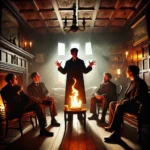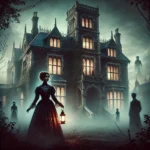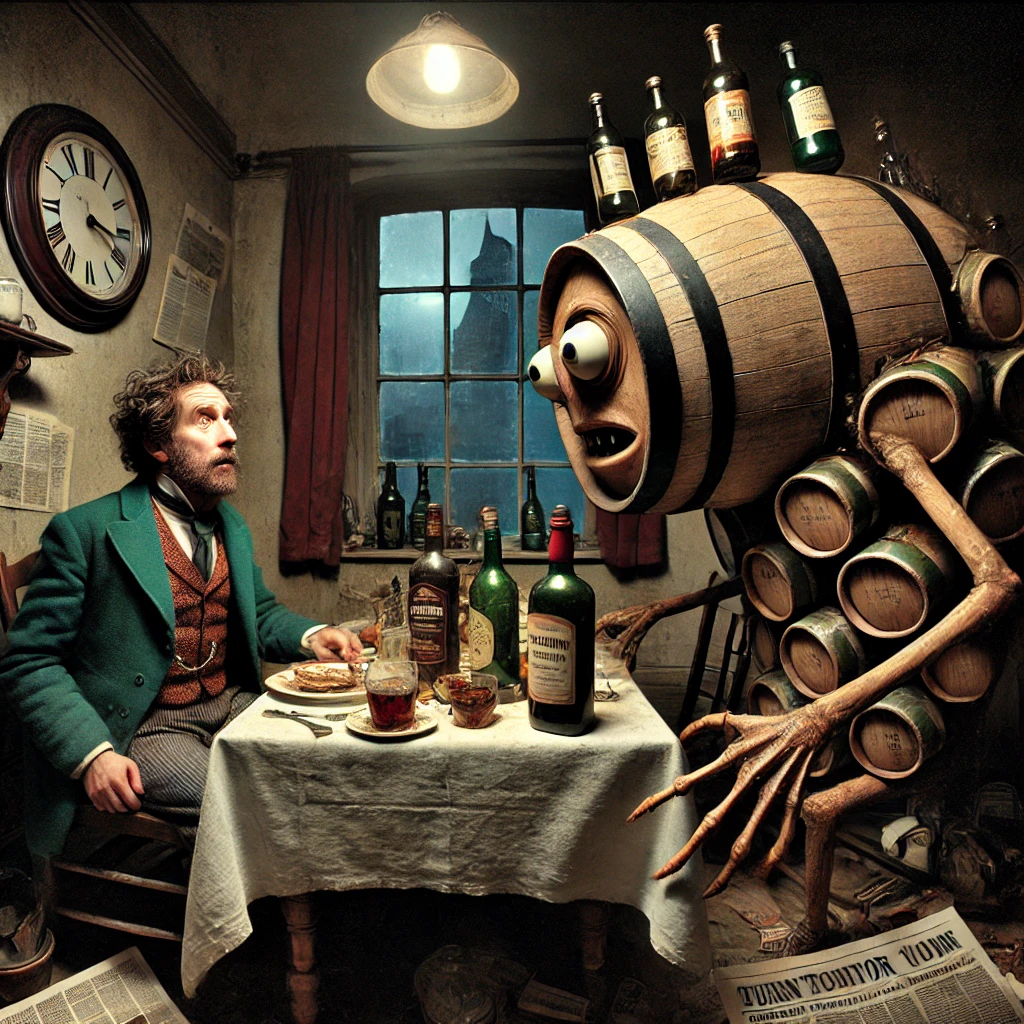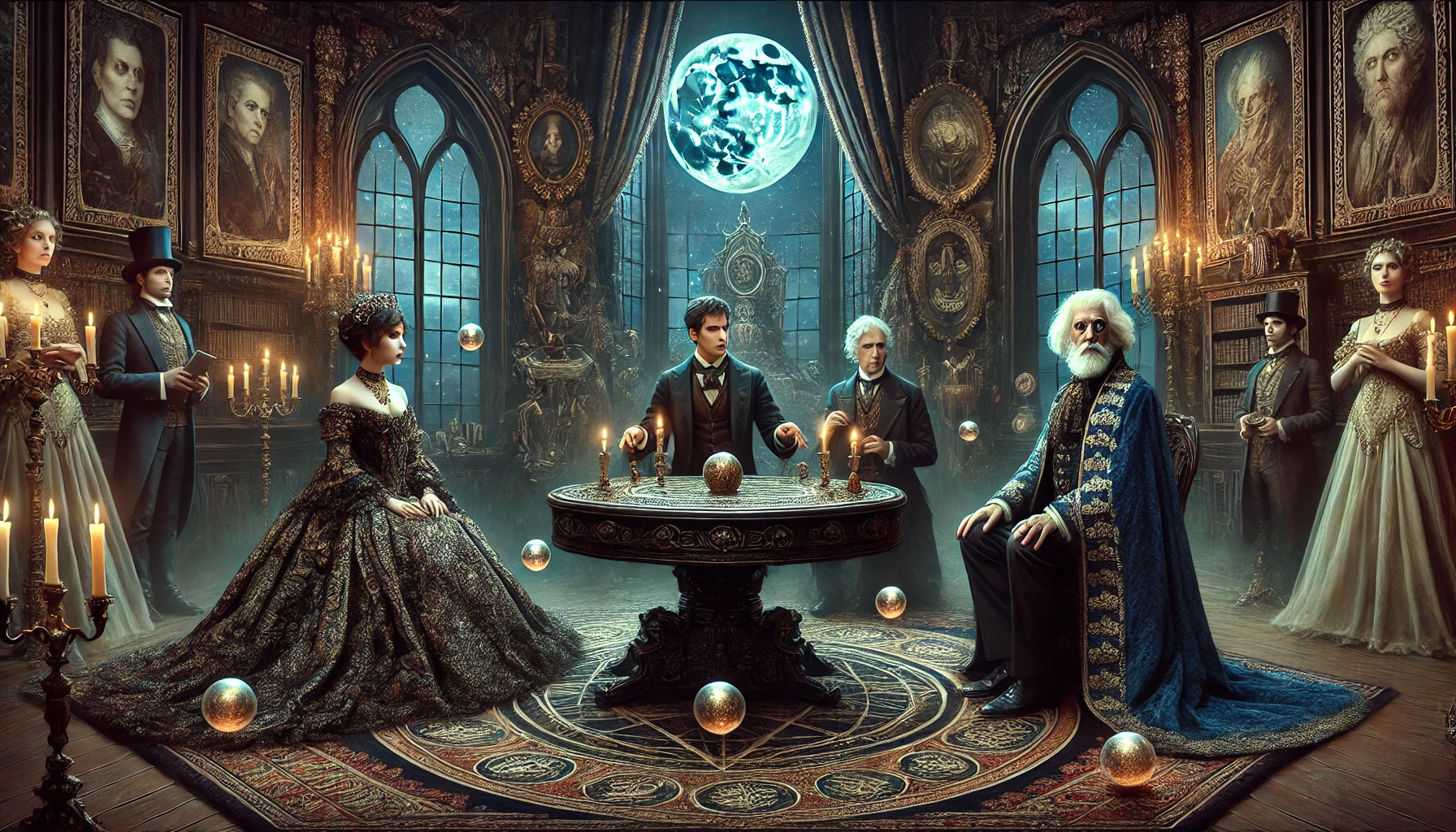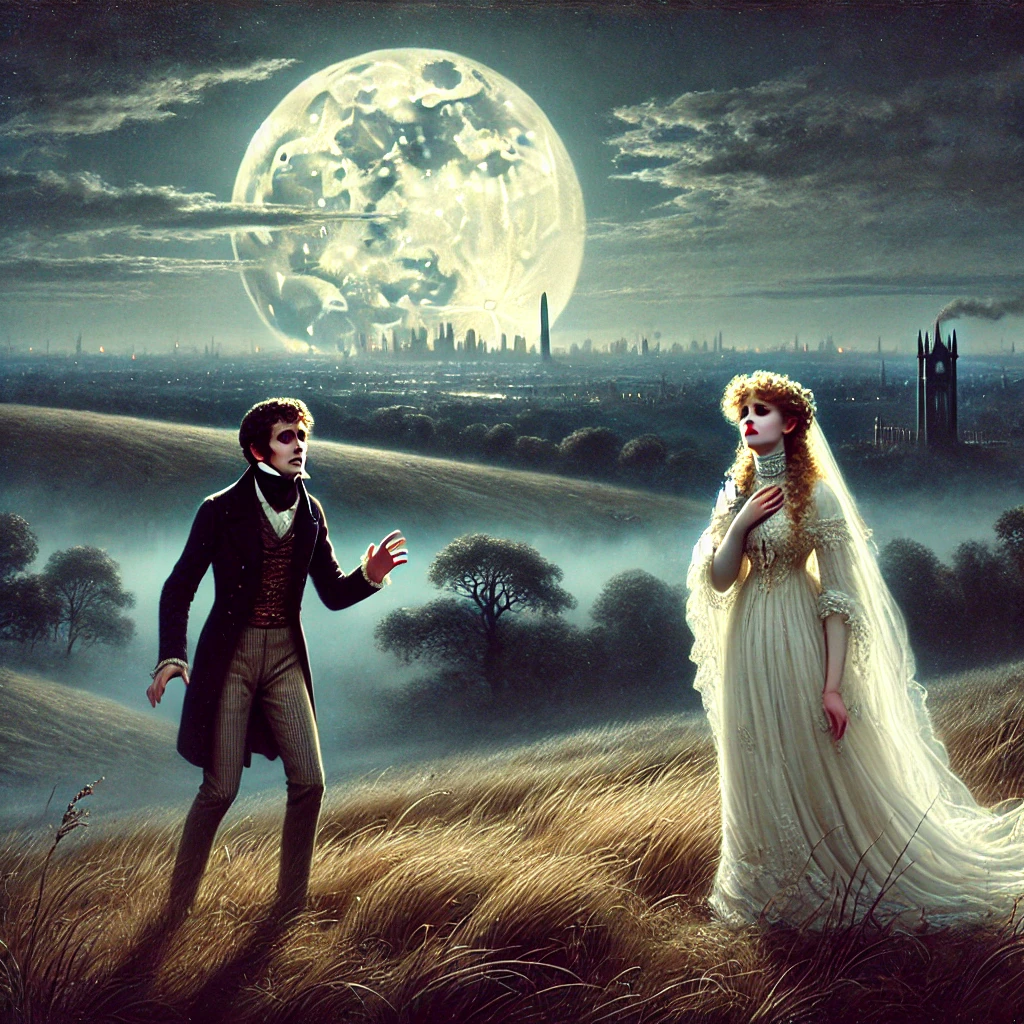“The Thing on the Doorstep” is a chilling short story by H.P. Lovecraft, first published in 1937. Set in the haunted town of Arkham, Massachusetts, it follows the disturbing relationship between the sensitive poet Edward Derby and the enigmatic Asenath Waite. The narrative, filled with Lovecraft’s signature blend of psychological terror and cosmic horror, explores themes of identity, possession, and the terrifying influence of ancient occult practices. As Edward descends into madness and fear, the story unfolds with a gripping, eerie atmosphere, making it a compelling read for fans of supernatural fiction and the macabre.
Plot Summary
Edward Derby was always a peculiar child, precocious and sheltered by his overprotective parents. A prodigy with a penchant for the macabre, he wrote haunting poetry that belied his tender age. His life unfolded in the shadowy town of Arkham, a place with an ancient history steeped in witchcraft and occult lore. Despite his brilliance, Edward remained dependent and fragile, unable to engage with the world beyond his scholarly pursuits. His closest friend, Daniel Upton, watched over him like an older brother, becoming his confidant and protector.
As Edward matured, his academic prowess grew, but his interactions with the outside world remained limited. He was drawn to the darker aspects of knowledge, spending hours in the forbidden sections of Miskatonic University’s library. It was during one of these dark academic pursuits that Edward’s path crossed with Asenath Waite, a woman from the eerie, decaying town of Innsmouth. Asenath, with her mysterious background and unnaturally intense gaze, captivated Edward. Despite her strange reputation and the aura of foreboding that surrounded her, Edward was enthralled by her beauty and intellect.
Their courtship was brief and intense. To Daniel, Asenath seemed to exert an almost supernatural influence over Edward, a fact that troubled him deeply. Rumors circulated about Asenath’s father, Ephraim Waite, a man who had dabbled in unspeakable occult practices and was whispered to have never truly died. It was said that Asenath inherited not only her father’s dark knowledge but also a perverse ambition that went far beyond the confines of ordinary human desire. Yet, against his better judgment and the warnings of those around him, Edward married her, and they moved into a secluded old mansion on the outskirts of Arkham.
The marriage was the beginning of Edward’s descent into a living nightmare. Daniel noticed the changes in his friend almost immediately. Edward, once timid and dependent, began displaying strange, erratic behavior. At times, he exhibited an eerie confidence and a disconcerting resemblance to Asenath’s father. He would occasionally disappear for days, only to return disoriented and unwilling to speak of where he had been. His eyes, once filled with a gentle curiosity, now seemed haunted by visions only he could see.
Asenath, on the other hand, grew more sinister and controlling. Her eyes seemed to bore into Edward’s soul, and Daniel could sense an unspoken, malevolent power at play. Edward confided in Daniel sporadically, hinting at horrors he could not articulate. He spoke of strange rituals, of journeys to desolate places where ancient, eldritch beings held court. He whispered about being trapped in his own body, of losing control to an external force that sought to usurp his very identity.
The truth, when it finally emerged, was more terrifying than Daniel could have imagined. Asenath was not simply a practitioner of the dark arts; she was a master of a forbidden sorcery that allowed her to transfer her consciousness into another’s body. Edward revealed that Asenath had been using this vile art to possess him, to wear his body like a disguise while he was imprisoned within her own. During these times, Edward experienced the world through the eyes of Asenath’s body, feeling her thoughts, her desires, and her insatiable hunger for power.
Edward was losing himself. Each time Asenath possessed him, the hold she had on his body grew stronger. He was becoming a prisoner within his own flesh, and the more she wore him, the weaker he became. Daniel was horrified but helpless, unable to intervene in a battle that transcended the natural laws of existence. He could only watch as his friend withered under the weight of an evil he could barely comprehend.
One fateful night, Edward came to Daniel in a state of utter terror. He claimed that Asenath intended to make the switch permanent, to imprison him in her decaying body forever while she took over his. He spoke of ancient rites, of an impending ceremony that would seal his doom. His words were disjointed, filled with the panic of a man who knew his time was running out. Then, as if some unseen force had gripped him, he fell silent, his expression becoming blank and distant. Daniel saw a flicker in Edward’s eyes, a flash of something cold and alien, and he knew that Asenath had taken hold once again.
Days passed without word from Edward. Then, one night, Daniel received a frantic call from a distant town in Maine. Edward had been found wandering the woods, half-mad and raving about dark rituals and a shoggoth—a creature of nightmare and shadow. Daniel rushed to retrieve him, finding his friend in a state of complete hysteria. Edward babbled about being trapped in a hideous cavern, of witnessing unspeakable rites, and of a monstrous being that defied all laws of nature. He spoke of ancient names—Shub-Niggurath, Kamog—and of an evil that transcended the boundaries of life and death.
Daniel took Edward back to Arkham, hoping that time and rest would restore his sanity. But it was not to be. Edward’s condition worsened, his mind fracturing under the strain of his experiences. He spoke of Asenath in hushed tones, insisting that she was no longer human, that she had become something else—something that sought to break the natural order and achieve a form of immortality through him. Edward’s final words to Daniel were a plea for help, a desperate cry to end his suffering before it was too late.
Then, one dark and stormy night, Daniel was awakened by a frantic pounding on his door. Edward stood on the threshold, a gaunt and broken figure, his eyes wide with terror. He thrust a note into Daniel’s hands before collapsing, and Daniel read the hastily scrawled words with growing horror. It was a warning—a final, desperate warning from Edward to kill the creature that had once been Asenath, to ensure that her monstrous spirit did not live on to torment others. As Daniel looked at his friend, he realized with a sickening dread that Edward was already gone, his body now a vessel for something unholy and inhuman.
Summoning all his resolve, Daniel did what had to be done. He drove to the sanitarium where Edward was kept under observation and ended the horror with six bullets. In that moment, Daniel knew he had not killed his friend but had instead freed him from a fate worse than death. Yet, even as he pulled the trigger, he could not shake the feeling that this evil was not so easily vanquished, that the horror of Asenath and her dark sorcery might still linger in the shadows of Arkham, waiting for another chance to break through.
Main Characters
- Edward Pickman Derby: A brilliant but timid poet and scholar. Edward is the central character whose life becomes entangled with dark forces through his marriage. His transformation throughout the story is tragic and deeply unsettling.
- Asenath Waite Derby: Edward’s wife, an enigmatic and sinister woman from the cursed town of Innsmouth. She possesses knowledge of ancient occult practices and has an uncanny influence over Edward. Her character is shrouded in mystery and malevolence.
- Daniel Upton: The narrator and Edward’s best friend. Upton provides a detailed account of Edward’s descent into madness and his encounters with the supernatural. His loyalty to Edward leads him into a terrifying confrontation with dark forces.
Theme
- Body Possession and Identity: Central to the story is the theme of body possession, where identities can be transferred between bodies. This concept raises questions about the nature of the self and the horrors of losing one’s identity.
- The Supernatural and Occult: Lovecraft delves into occult practices and ancient knowledge that goes beyond human understanding. The use of forbidden knowledge and rituals emphasizes the thin veil between reality and the unknown.
- Madness and Horror: The story explores the theme of madness, both literal and metaphorical. The characters grapple with horrors that challenge their sanity, leading to a sense of paranoia and fear of the unknown.
- Cosmic Horror: A hallmark of Lovecraft’s work, the story hints at greater cosmic entities and powers that are beyond human comprehension, instilling a sense of insignificance and helplessness in the face of such forces.
Writing Style and Tone
Lovecraft’s writing style in “The Thing on the Doorstep” is marked by its elaborate and archaic language, creating an atmosphere of antiquity and otherworldliness. His use of first-person narrative adds an intimate and personal dimension to the horror, making it feel immediate and real. The tone of the story is one of pervasive dread and unease. Lovecraft carefully builds suspense through detailed descriptions and a slow revelation of the supernatural elements. He employs a formal and almost clinical approach to the narrative, which contrasts with the horrifying and often grotesque events, enhancing the impact of the horror.
We hope this summary has sparked your interest and would appreciate you following Celsius 233 on social media:
There’s a treasure trove of other fascinating book summaries waiting for you. Check out our collection of stories that inspire, thrill, and provoke thought, just like this one by checking out the Book Shelf or the Library
Remember, while our summaries capture the essence, they can never replace the full experience of reading the book. If this summary intrigued you, consider diving into the complete story – buy the book and immerse yourself in the author’s original work.
If you want to request a book summary, click here.
When Saurabh is not working/watching football/reading books/traveling, you can reach him via Twitter/X, LinkedIn, or Threads
Restart reading!



